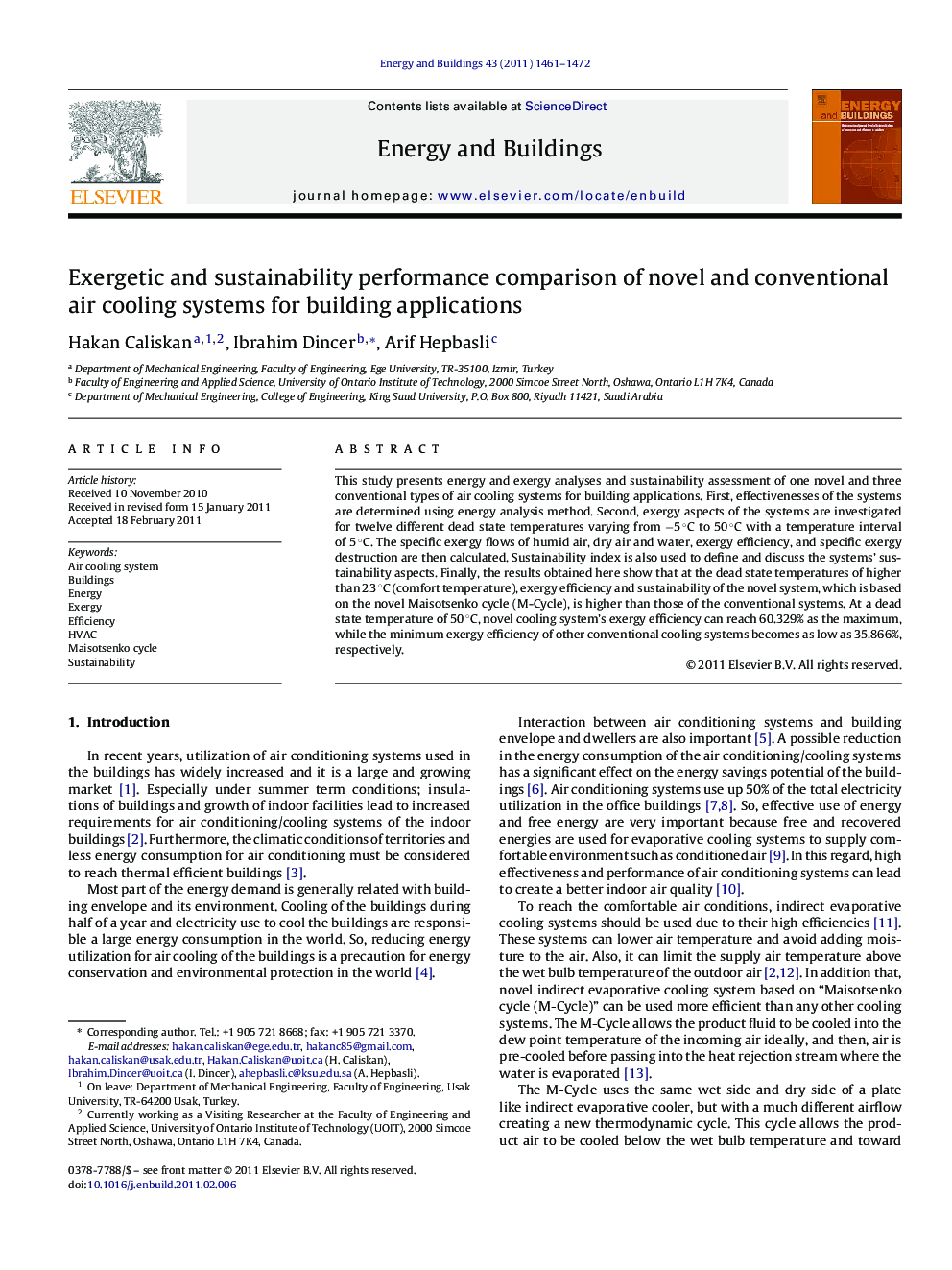| Article ID | Journal | Published Year | Pages | File Type |
|---|---|---|---|---|
| 264659 | Energy and Buildings | 2011 | 12 Pages |
This study presents energy and exergy analyses and sustainability assessment of one novel and three conventional types of air cooling systems for building applications. First, effectivenesses of the systems are determined using energy analysis method. Second, exergy aspects of the systems are investigated for twelve different dead state temperatures varying from −5 °C to 50 °C with a temperature interval of 5 °C. The specific exergy flows of humid air, dry air and water, exergy efficiency, and specific exergy destruction are then calculated. Sustainability index is also used to define and discuss the systems’ sustainability aspects. Finally, the results obtained here show that at the dead state temperatures of higher than 23 °C (comfort temperature), exergy efficiency and sustainability of the novel system, which is based on the novel Maisotsenko cycle (M-Cycle), is higher than those of the conventional systems. At a dead state temperature of 50 °C, novel cooling system's exergy efficiency can reach 60.329% as the maximum, while the minimum exergy efficiency of other conventional cooling systems becomes as low as 35.866%, respectively.
